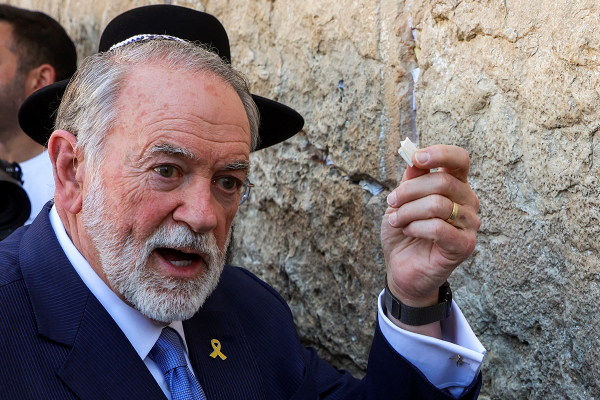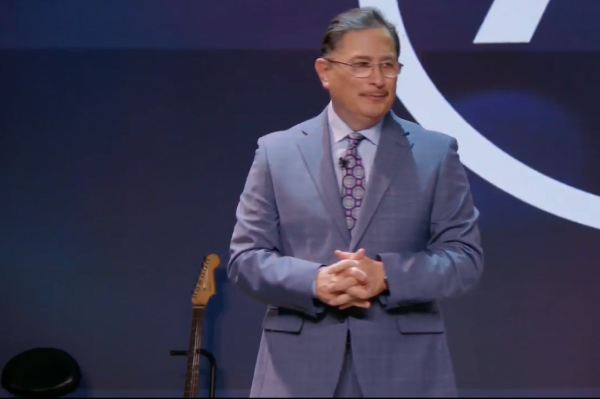The Christian’s test for civil disobedience

Although I have long relied on the works and examples of these men and many other courageous men and women throughout biblical and modern history, there are flaws when looking at each one as a Christian moving forward.
Christian civil disobedience transcends political civil disobedience as Christians serve a Kingdom that is outside the realm of politics and recognizes that justice, outside of a biblical framework, is inherently unjust. As St. Aquinas and Augustus state, an unjust law is no law. Although our response may be to political or legal pressures, it can also be a response to cultural pressures as well.
As believers in Christ, we are under a microscope. These days, that microscope looks like Facebook algorithms to determine whether or not our beliefs constitute hate speech.
Since becoming a Christian, I have been told how I am supposed to act as a Christian by people of faith, as well as fire-fighting Christians (legalist Christians who like to put the fire out). But I have also been told how I am meant to act by non-Christians including Wiccans and Satanists. People want to analyze and determine if a Christ-follower must be like a socialist who gives all of the hardworking taxpayers' money away to social programs in order to love our neighbor. Or they may see Christ-followers are only those who fight for the pre-born while banishing the alien and stranger among us.
Regardless, as Jesus told us in the Gospels, following Jesus has been politicized, polarized, and analyzed into something rather different from marvelous salvation by grace through faith.
And as the world watches what we do and how we do it, we have a simple question to ask in every action and reaction. This question is imperative before we embark on any journey of Civil Disobedience.
Does this 100% comply with the words of Jesus and the Bible as a whole?
While this is a question we would all do well to ask more often, when it comes to standing firm against culture, government, and even the progressive church, we must remember that there are eyes on us on all sides. So how are we going to respond? Will we take up arms? Will we do battle through bloodshed? Through refusal to pay taxes? Through starvation?
There are methods extreme and simple, violent and non-violent, loud or quiet. Many methods are devoid of sin and simply come down to where the Lord is leading you. For instance, we may believe that starving ourselves is harming the body God has given us, but Christians have always been called to fast. Will our fasts be God-honoring? Or will they reflect the Pharisees who went about in sackcloth in ashes, expressing their deep suffering and hunger for attention?
Likewise, are we engaging in Civil Disobedience for a reason that complies with the words of Jesus and the Bible as a whole?
This is where we have to ask ourselves if we are simply unhappy with a decision being made by the ruling authorities or if it is truly a situation in which we are forced to participate — actively or passively — in a crime against the law of the Lord.
It is certainly easy to find laws we disagree with or dislike. But are they truly against God? Does our choice to stand against them comply with what we have been taught by Jesus? The Bible does make it clear that God appoints leaders — for better, for worse, and for a reason. We are also told to give Caesar what is Caesar’s.
When we are angry that our taxes are going toward abortion facilities, we can easily stand firm in defiance and shout that it would cause us to actively participate in sin. But when Jesus said those words to His people in Matthew 22, He was speaking to people who were paying taxes to a corrupt leadership who treated them poorly. There were no provisions for avoiding sin by avoiding taxes. Instead, we have been directly told to live under the authority of the land.
This is part of the difference between being in the world and not of it. We do still have to live our lives here. We do have to be subject to ruling authorities. The difference is that we are subject to the law of God above those authorities and we can only stand against our worldly rulers if we must in order to be completely obedient to Jesus.
Theologies may vary on the level to which the Holy Spirit speaks to us, but we have to be cautious as to whether we are led by the Holy Spirit or by our own desires which we project as being the words of Jesus. Therefore, we also have to consider if our choice for Civil Disobedience is in line with the nature of the Bible.
The Bible is where we find incidents like Jesus turning over tables in the Synagogue, Esther fasting as she silently worked for the freedom of her people, and David cutting the garment of King Saul, sparing his life to not harm him.
How do these incidents compare? Was Jesus justified in defying those who were turning the temple of God into a place where riches were reaped? Absolutely! It was a defilement of the place where the Spirit was meant to dwell. Jesus saw how God’s glory was being cheapened or ignored and He could not abide such an act.
What about Esther as she wooed her husband through her grace and pure heart while striving to undo a terrible law that was put forth by a narcissist to destroy God’s chosen people? Certainly, Esther was able to continue worshiping her Creator while effecting change. She maintained her obedience to God while undermining one of the most important men in Israel.
And then, there is David. There are few men in the Bible portrayed with so many dimensions as David and that is one of the reasons why this incident is so striking.
While hiding in a cave from Saul who is trying to kill him, David cuts a corner of cloth from Saul’s clothing and then retreats.
Why would he do this? Why would David bother risking the chance that Saul might catch him and kill him there? Or why wouldn’t he just go ahead and kill Saul first, before Saul has a chance to strike?
One school of thought is that David simply wanted to send a warning to Saul while another said that by taking the hem of the garment, he was symbolically transferring the Kingdom from Saul to David. Regardless, David, twice, wanted to let Saul know that he had been close enough that he could have killed him, but he didn’t. Essentially, David wanted Saul to be afraid.
Ultimately, however, after the first time, when Saul had a lucid conversation with David, guilt got a hold of David, and he could no longer allow himself to get away with this clever little warning.
He realized that he had disobeyed God through this silent activism because he had made an effort to harm the Lord’s anointed. It may not have been physical or detrimental harm, but Saul was certainly showing that his thoughts were fractured enough without David giving him more reason to jump at shadows or worry about losing his Kingdom.
As we seek to prepare for a time in which we may have to engage in Civil Disobedience, we have to ensure that our actions are in line with the nature of the Bible, that we are showing the due respect that we have been told to show those who rule over us, but ultimately reserving the highest honor of obedience to God above all else.
And this is when we can engage in disobedience while still being obedient to God. If our methods are honoring to God, showing righteous anger against what dishonors Him as opposed to childish anger which makes our own betterment the primary goal, we can still live in obedience to Him.
As French theologian John Calvin stated, “A dog barks when his master is attacked. I would be a coward if I saw that God's truth is attacked and yet would remain silent.” Our Master is worthy of more than cowardice. It is in Him, we find the strength to bark.
Excerpt taken from On the Duty of Christian Civil Disobedience. Used with permission from Peter Demos. More about “On the Duty of Christian Civil Disobedience” is available at https://www.peterdemos.org/
Peter Demos is the author of “Afraid to Trust,” restaurateur, president and CEO of Demos’ Brands and Demos Family Kitchen and leadership source expert.





















